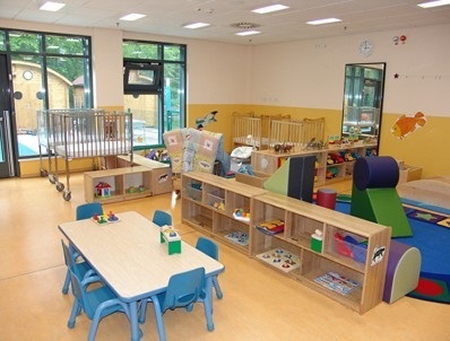Congratulations, you’ve just asked our field’s $6 million dollar question! With low employment rates in the U.S., it’s a tough climate for everyone. So get creative and believe the right people will find you. Use social media. Post engaging photos on your program’s social media accounts—images of teachers happy at work. If teachers are so inclined, encourage them to post on their personal Facebook pages, inviting others to join them in their satisfying work. Recruit online through popular sites such as Indeed.com and Idealist.org. Be sure your advertisement talks about how you treat staff as valued and unique individuals. Never underestimate the appeal of a fantastic organizational culture. Create a compelling flyer inviting teachers to join your team. In addition to job fairs at community colleges and universities, be sure to distribute flyers at student activity centers, doctors’ offices and dental clinics, health clubs, and so on. Tina Reeble, Dimensions Education Programs, Lincoln, Nebraska ADVERTISEMENT Compensation will never equal the value of what we do as teachers of young children. Yet that noble sentiment must not get in the way of striving together for a working wage, a worthy wage, and a compensation scale that can reward quality at all levels of our field. Together, we must help all participants see their standing within a larger professional salary scale and how each individual can advance in their professional aspirations. There must be a reason to stay, a professional goal that benefits the individual and helps them see how their contribution, sacrifice even, fits into the larger scheme of the early childhood education and care profession. I have found some teachers benefit from this type of tension between passion, mission, vocation and profession. Dr. Josh Thompson, associate professor of early childhood education, Texas A&M University To help potential staff want to enter the field and stay in the profession, stress the importance of the early childhood educator in the life of a young child during the first five years of life. Stress the lifelong impact that a child’s early experiences will have on her or his personality as an adult. The only “job” more important than the early care and education professional is that of a parent. Dr. William A. Mosier, professor and ECE graduate program adviser, Wright State University First, focus on creating a quality program and positive working environment. Our program philosophy is, “Happy teachers make happy children, make happy parents.” A positive environment that has clear guidelines for performance and actively and consistently acknowledges staff performance creates a place teachers want to work—even if the pay is not your number one selling point. Teachers apply to work with us because of the quality of our program and stay for the same reason. The few teachers who leave for “greener pastures” often end up returning, disillusioned from working in programs of less quality. Eric Nelson, Director, Outdoor Classroom Project, Child Educational Center, LaCanada, California Let your pride in your organization shine through in the way you advertise job openings. Talk about opportunities for fulfilling work that makes a difference in the world. Paint a picture of the valuable parts of your work environment: supportive colleagues and leaders; opportunities for professional development; genuine fun at work with great teammates. Find something unique you can offer that helps you stand out. Can you offer partial tuition reimbursement? Paid time off for staff celebrations, birthdays or professional milestones? Benefits that get better the longer people stay? Emphasize these positives in your recruitment efforts. You can do this, and we’re with you! Pam Boulton and your ELI colleagues Have a question for Dear ELI?Dear Rattled,
Dear Rattled,
Dear Rattled,
Dear Rattled,
Dear Rattled,
We want to hear from you! Send us your question at childcareexchange.com/deareli
Exchange Press is committed to supporting early childhood professionals worldwide in their efforts to craft early childhood environments where adults and children thrive - environments that foster friendship, curiosity, self-esteem, joy, and respect; where the talents of all are fully challenged and justly rewarded.
Related
ADVERTISEMENT











